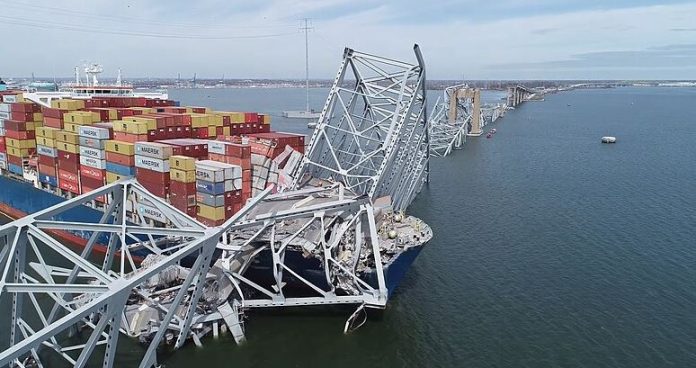On the morning of March 26th, a large cargo ship lost power and destroyed the Francis Scott Key Bridge in Baltimore, Maryland. This incident, which claimed the lives of six construction workers, is the nightmare that never ends for 20 crew members of the Dali from India and Sri Lanka who find themselves stuck on the ship with no end in sight.
Several factors contribute to the crew’s inability to leave. Though for the most part the ship remains stagnant, a vessel of this size is required to still be staffed in case something goes wrong, and to make sure everything works properly. Additionally, the crew is unable to disembark because their visas have all expired in the unexpected extra time they have found themselves stranded. Until the investigation around the ship’s malfunction concludes, it is unlikely the ship will leave the Baltimore. This could take several years.
Life on the Dali is isolated for the crew. Not only is the crew unable to leave the ship, they are also limited in their contact with loved ones since their phones were confiscated as part of the ongoing investigation. Joshua Messick, the executive director of Baltimore International Seafarers Center, who has been in communication with the Dali Crew, is quoted by BBC saying “They can’t do any online banking. They can’t pay their bills at home. They don’t have any of their data or anyone’s contact information, so they’re really isolated right now.”
Synergy Marine, the shipping company of the Dali, is doing its best to meet its crew’s needs. Spokesperson Darrel Wilson says, as reported by BBC, that they are making sure religious representatives are available and providing emotional support services. They are ensuring the men have what they need, including getting shipments of catered Indian food onboard. The crew has also been given SIM cards and temporary phones although it lacks their personal data.
While progress is slow moving, the Dali was recently floated out of the canal and back to a port in Baltimore. With this movement, Messick hopes the men will have slightly more freedom, such as being able to leave the ship with heavy restrictions.
Philip Schifflin, director of the Center for Mariner Advocacy, highlights the crew’s situation within the context of our daily lives. “I think most of us think of the items that we use on a daily basis show up on Amazon… The reality is 90% of the cargo in the world is carried on vessels. Vessels are manned by seafarers. And to most of us – the vast majority of us – they’re invisible. We don’t even know they’re there. And I think a lot of times, we take their sacrifices for granted.”
AsAmNews is published by the non-profit, Asian American Media Inc.
We are supported through donations and such charitable organizations as the Robert Wood Johnson Foundation. A big thank you to all our readers who supported our year-end giving campaign. You helped us not only reach our goal, you busted through it. Donations to Asian American Media Inc and AsAmNews are tax-deductible. It’s never too late to give.
Please also follow us on Instagram, TikTok, Facebook, YouTube and X.

